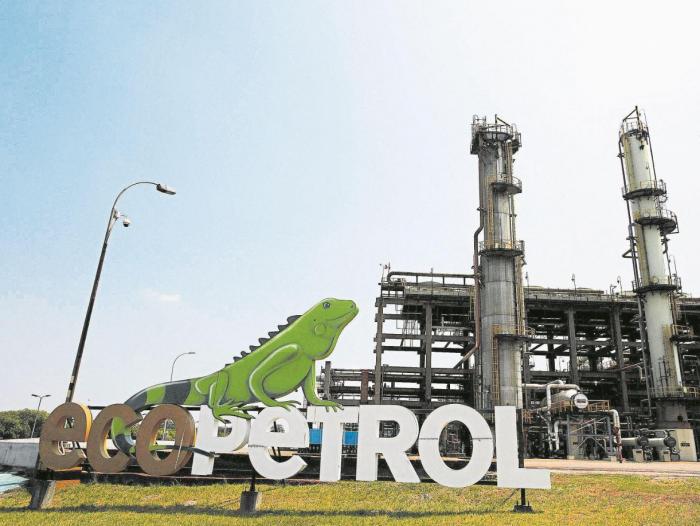Perhaps no head of state of an oil-producing country has bolder plans to move away from fossil fuels than Gustavo Petro of Colombia.
It’s an impulse that, in the abstract, few have a problem with.
The critical question is whether Petro can execute it in a way that mitigates the financial consequences for Colombians.
Otherwise, the political viability of the plan is likely to fail.
The answer will not come for months or even years. But the first signs of trouble are emerging in one corner of the bond market, where traders buy and sell bonds issued by state oil giant Ecopetrol.

Since Petro took office in August as the first left-leaning head of government in the country’s history, Ecopetrol’s US$11 billion in dollar bonds have lost nearly 8 percent.
That’s more than double the average decline for companies in Bank of America Corp.’s U.S. High Yield Energy Index.
The problems faced by bondholders, of course, are not the same as those faced by ordinary citizens.
But in this case, the market decline could represent a significant economic blow in a country that still derives more than half of all export revenue from oil and coal.
“It has to be a prolonged process; it won’t happen overnight,” said Jaimin Patel, senior credit analyst at Bloomberg Intelligence.
“The biggest concern is that production will start to stabilize and decline over time as the government implements its plan.”
A Colombia’s Ministry of Mines and Energy representative said the government’s energy transition plan calls for Ecopetrol to play a leading role.
According to the spokesperson, “The priority is to intensify renewable energy production and accelerate the country’s fair, safe and gradual energy transition.
An Ecopetrol representative declined to comment to Bloomberg in linea.
Of course, rising U.S. interest rates and recession worries across the board have affected fixed-income assets, particularly longer-dated debt, riskier loans with speculative-grade ratings, and bonds from developing countries seen as more vulnerable to a global economic downturn.
But even compared to other emerging market oil companies, Ecopetrol’s bond decline stands out, outpacing the 6.6% decline in the BofA Emerging Markets Corporate Plus Energy Index since Petro took office.
While Petro has stated that it will take about a dozen years to phase out the economy’s dependence on oil and coal, money managers have become cautious.
Daniel Guardiola, an analyst at Banco BTG Pactual, believes that Ecopetrol is too important to Colombia and that petroleum accounts for 40% of exports, 15% of tax revenues, and 30% of foreign investment, is too large a sector to derail.
In addition to halting new exploration licenses, Petro fulfilled an election promise on his first day in office by submitting legislation to Congress to increase taxes on energy exports.
His administration has also clarified that it will seek a ban on hydraulic fracturing (fracking), which requires large amounts of water and has been linked to earthquakes.
As a result, Ecopetrol has canceled two of those pilot projects.
“As Petro discloses more and more of its plans early on, there continues to be a lot of uncertainty among investors about the future of this company,” said Jorge Ordonez, corporate credit strategist at BBVA Securities to Bloomberg.
JUICY EARNINGS
Ordonez values Ecopetrol’s shorter-term bonds because of the government’s commitment to honor existing exploration and production contracts.
According to Trace data, the company’s US$1.2 billion in bonds due in January 2025 has risen to 7.09%.
The bonds are rated Baa3 by Moody’s Investors Service and BB+ by S&P Global Ratings and Fitch Ratings, the same as government bonds.
“It’s a very juicy yield,” Ordonez said. “I’m a buyer,” he said at the front end of the bond curve, adding that Ecopetrol is “a good company in the wrong zip code.”
Even before Petro was elected, Ecopetrol had pledged to reduce net carbon emissions to zero by 2050 as part of a global push by oil companies to improve their carbon footprint.
But with disruptions in international energy markets caused by the war in Ukraine and the threat of energy shortages in Europe this winter, the pressure to keep the lights on is a priority. While few question the need for a long-term transition, some market observers say Ecopetrol risks missing a lucrative opportunity.
In many ways, Petro’s plan sends an essential signal to the region,” said Henning Gloystein, director of energy, climate, and resources at Eurasia Group.
“But he has to be careful that this signaling character does not become a red flag. Colombia has a vital role to play in helping Europe phase out Russian fossil fuels.
This is a strategic opportunity for Colombia to improve its revenue and geopolitical relations with key partners.

